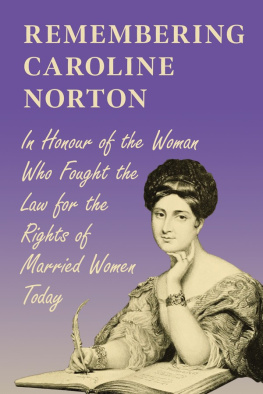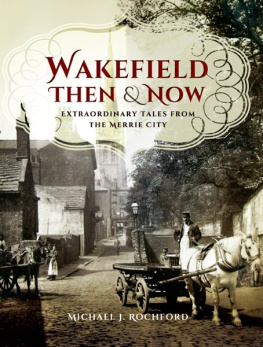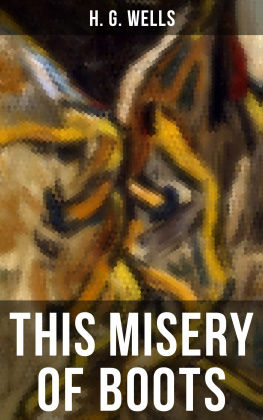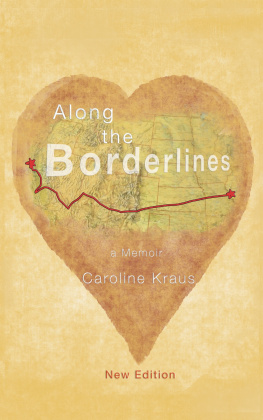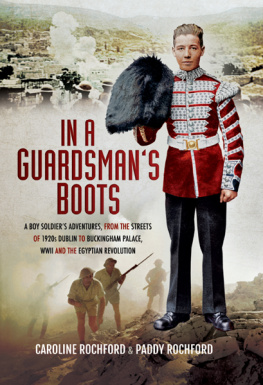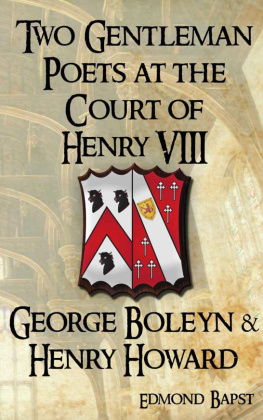First published in Great Britain in 2016 by
Pen & Sword Military
an imprint of
Pen & Sword Books Ltd
47 Church Street
Barnsley
South Yorkshire
S70 2AS
Copyright Caroline Rochford 2016
ISBN: 978 1 47386 391 0
PDF ISBN: 978 1 47386 394 1
EPUB ISBN: 978 1 47386 393 4
PRC ISBN: 978 1 47386 392 7
The right of Caroline Rochford to be identified as the Author of this Work has been asserted by her in accordance with the Copyright, Designs and Patents Act 1988.
A CIP catalogue record for this book is available from the British Library
All rights reserved. No part of this book may be reproduced or transmitted in any form or by any means, electronic or mechanical including photocopying, recording or by any information storage and retrieval system, without permission from the Publisher in writing.
Typeset in Ehrhardt by
Mac Style Ltd, Bridlington, East Yorkshire
Printed and bound in the UK by CPI Group (UK) Ltd,
Croydon, CRO 4YY
Pen & Sword Books Ltd incorporates the imprints of Pen & Sword Archaeology, Atlas, Aviation, Battleground, Discovery, Family History, History, Maritime, Military, Naval, Politics, Railways, Select, Transport, True Crime, Fiction, Frontline Books, Leo Cooper, Praetorian Press, Seaforth Publishing and Wharncliffe.
For a complete list of Pen & Sword titles please contact
PEN & SWORD BOOKS LIMITED
47 Church Street, Barnsley, South Yorkshire, S70 2AS, England
E-mail:
Website: www.pen-and-sword.co.uk
Acknowledgements
F irstly, special thanks should go to Paddys late widow, Marjorie, who gave his notes, letters, ephemera and draft manuscript to my husband and me. Im sorry she never got to see the finished story in print.
To Michael, my husband: what can I say? Your genealogical skills and knowledge of history know no bounds. What would I do without you?
To Phyllis and our extended Irish family: thank you for your hospitality, and for sharing your family tales and photographs with a quartet of strangers who turned up on your doorstep. Also, thank you to Charlie for your thoroughly enjoyable whistle-stop tours of Dublin. Youve all helped me to bring Joeys story to life.
To Linne at Pen and Sword: thank you for seeing the potential I could see, when others couldnt.
To Steven Spielberg (in advance!): Im looking forward to the Hollywood premiere
Chapter 1
The Royal Hibernian Military School
T he sound of marching boots has echoed in my ears since before I can remember. My childhood wish was to follow in my fathers footsteps and become a brave soldier; but little did I know back then just how many years Id march, sweat and fight side by side with the tallest of Guardsmen, in their big boots, whilst Id always remain small in my little boots. Yet those boots were destined to take me to faraway lands, leading me further and further from my loved ones and the provincial village of Chapelizod, near Dublin, I used to call home so long ago.
The only life my father ever knew was the life of a soldier, spending his days marching across bloody battlefields under many a foreign sun. He survived countless front line combats, from the Second Boer War all the way through to the First World War, until he was discharged and forgotten. Many were the times when hope was failing, but with a strong heart and a love of God, king and country, he marched on until his own last post.
An old, and probably false, family legend tells that we Rochfords are descended from the great eighteenth-century earls of Belvedere. Somewhere along the line our branch of the family tree must have become fractured, for it began to grow along a completely different path. My grandfather, Patrick Rochford, was just a lowly chimney sweep from the mean streets of Dublin. Orphaned in his teens, he survived on the edge of society, stealing a crust of bread whenever he could. Living conditions were bleak for those who had no money, and Patrick died when Father was just two years of age, leaving his widow, Mary, with a young child to feed. The burden of parenthood weighed heavily on her shoulders, and unable to cope, my grandmother left Dad on the doorstep of St Brigids Orphanage on Eccles Street, never to see him again.
It was a cold winters morning in 1889 when the scrawny little youth left the home of his adoptive mother, Mrs Glynn, to join the British Army and take the Kings shilling, as enlistment was called in those days. Before Father was even strong enough to pick up a rifle, he was placed in a pair of oversized army boots and in a few short years was shipped off to fight in India, where he and his comrades found themselves caught up in the mountains and the Relief of Chitral. For just a shilling a day, he battled through war and campaign for many a long year, before finally leaving behind the friends hed made in the East Lancashire Regiment to settle down to what he hoped would be a normal, civilian life.
Chapelizod, 17 August 1902: Paddys parents, Joseph and Annie Rochford, on their wedding day.
Joseph Rochford in his army uniform during the First World War while serving as a sapper with the Royal Engineers. In peacetime he worked for Ordnance Survey in Phoenix Park, Dublin.
On 17 August 1902 he married my mother, little Annie Gaffney, who stood barely over 4 feet tall. Laying down roots on Park Lane in the village of Chapelizod, life was bearable for the growing family. Though they were poor, the vast, sprawling expanse of the beautiful Phoenix Park was their own back garden. Father took a job at the Ordnance Survey, whose headquarters were in the park, and Mother was able to feed and clothe her young children in relative comfort.
There were four surviving daughters born before my arrival on 1 April 1912, just days before the worlds most infamous ship embarked on her maiden, and only, voyage. The Titanic was said to have been unsinkable. The nations hearts almost stopped when the news came through that this floating bastion of wealth was doomed to an afterlife on the seabed, along with scores of men, women and children from every walk of life.
So, here I arrived, little Joseph Patrick Rochford, after my father and grandfather. I was Mothers April Fools joke; that was what she thought, anyway, when the doctor told her, Its a boy! after so many girls.
Just a babe in arms, I was blissfully unaware that trouble was brewing far away on the horizon; and when the year 1914 came it brought with it the news that Britain was at war with Germany. Without hesitation my father picked up his rifle and pack once again, leaving his wife and children to land with the first troops in France. Here, often buried to the waist in mud, he moved backwards and forwards amid shot and shell, and in the midst of the grey dawns hed charge across no-mans-land on the front line during bayonet attacks. Life was hard. During the Retreat from Mons he sucked the leather tongue of his boot to save his sanity. He used to keep stones in his pocket to suck on whenever he was thirsty or hungry, which was most days.
As Father struggled through the trenches, so my mother battled to raise a family by herself. The dreaded telegrams: your husband is missing, and later: he has reported back to his lines, did nothing to help.
In 1916 bombs and bullets began thudding and flying through the streets of Dublin, though this time the Germans werent to blame. The Emerald Isle was under attack from its own people, as the Irish rose to fight for freedom. In those days Ireland was under British rule; it had been this way for more than seven centuries. The wearing of the Green signified that you were on the side of the Irish, whilst the wearing of the Red, White and Blue showed you sympathized with the English. The wearing of either could mean instant death. Down with the English! posters and other such slogans began to appear. Sons took opposite sides to their fathers; brothers were shooting brothers.




